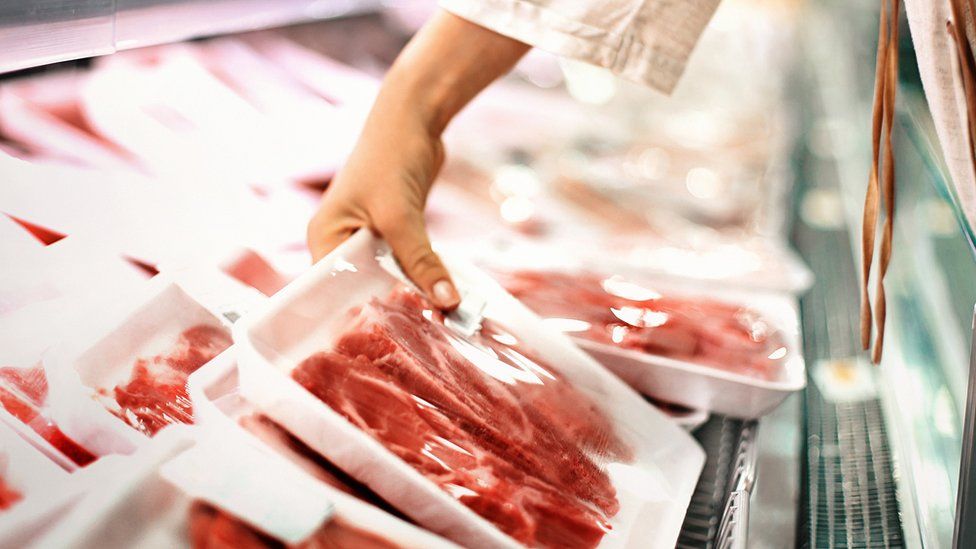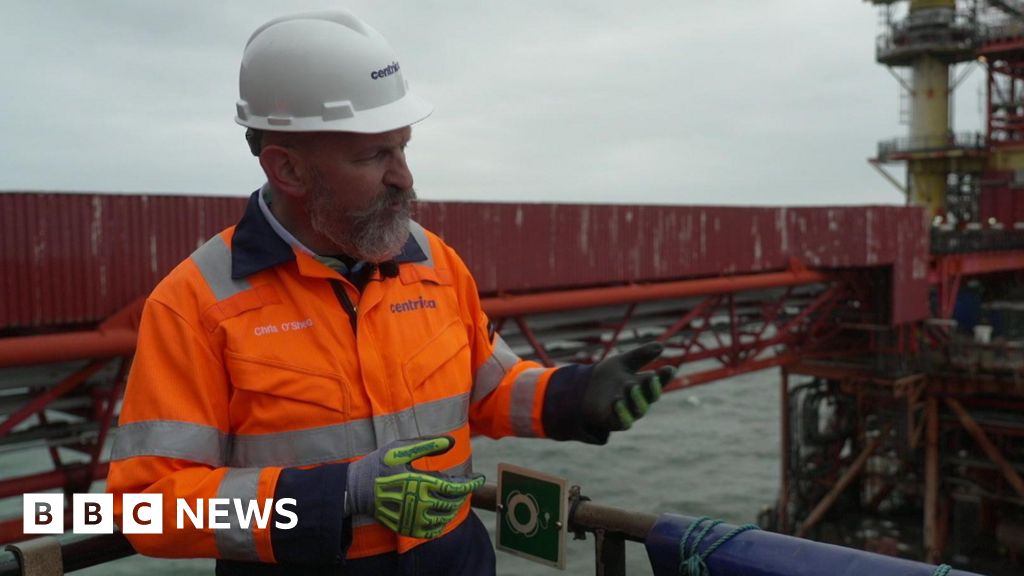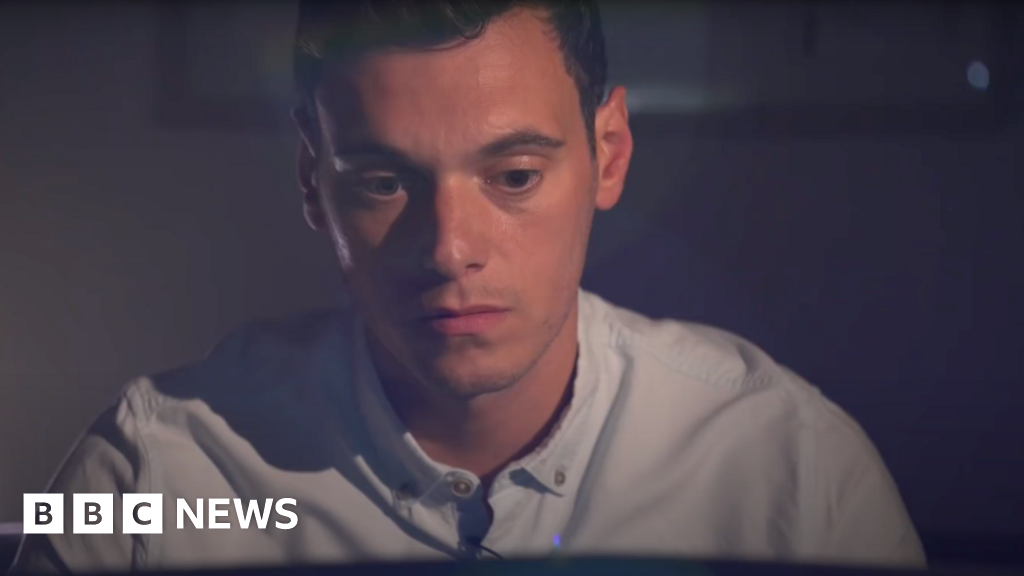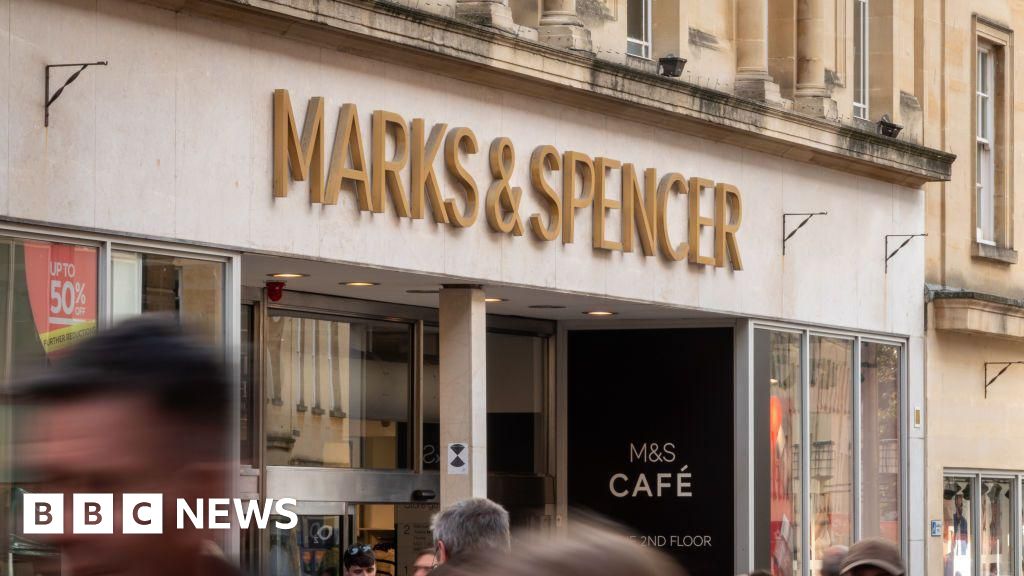ARTICLE AD BOX
 Image source, Getty Images
Image source, Getty Images
By Noor Nanji & Nicu Calcea
Business reporters, BBC News
Steaks are being fitted with security tags and coffee replaced with dummy jars, as supermarkets battle to curb a rise in shoplifting.
Some stores are also limiting the number of items on shelves in an attempt to reduce theft.
It comes as data analysed by the BBC showed shoplifting offences reached their highest point in four years in March, as the cost of living rises.
Retailers say they are spending heavily on anti-crime measures.
In March, police forces in England, Wales and Northern Ireland recorded nearly 33,000 incidents of shoplifting according to data analysed by the BBC.
That is a significant 30.9% increase compared with March last year.
The BBC has contacted all the main supermarkets in the UK to ask whether they have put in place extra security measures.
Some, including Waitrose, were unable to comment on matters of security. Others insisted the measures are not being taken nationwide, but have been implemented at individual stores facing high rates of theft.
Photos circulating on social media have shown the range of anti-shoplifting measures being taken at different supermarkets.
One user posted a picture of steaks enclosed in security devices at a Co-op store. "They're packaging steaks like they're gold bars," they wrote.
This Twitter post cannot be displayed in your browser. Please enable Javascript or try a different browser.View original content on Twitter
The BBC is not responsible for the content of external sites.
Allow Twitter content?
This article contains content provided by Twitter. We ask for your permission before anything is loaded, as they may be using cookies and other technologies. You may want to read Twitter’s cookie policy, external and privacy policy, external before accepting. To view this content choose ‘accept and continue’.
The BBC is not responsible for the content of external sites.
Another user posted a picture of "dummy" coffee jars on a shelf at Co-op, with customers told to ask at the counter if they want to buy the real thing.
"Cost of living reaching new heights, my local Co-op is now a grocery show room," she wrote.
A Co-op spokesperson told the BBC that these are not nationwide policies at their stores.
They added: "Protecting the safety of our colleagues is a priority and we know shoplifting can be a flashpoint for violence against shop workers so whilst this is not a nationwide policy, a decision to implement product security measures at a local level can be made, if a store is experiencing a particular issue."
Image source, Lorraine King
Separately, pictures have emerged of shelves at M&S with only three steaks on them.
Writing on Twitter, one user, Lorraine King, said she was "shocked" at the sight of the near-empty shelves. She said a worker told her the move was deliberate, as otherwise "thieves clear the shelves in one swoop and do a runner".
A M&S spokesperson told the BBC that the company does not have a policy to restrict the number of products on sale.
"If an individual store has a problem with theft, then it may introduce their own measures," the spokesperson said. "However we would always ensure our products are on display for our customers to buy."
Recently Sainsbury's faced a backlash after introducing barriers at some of its self-checkout tills, which force shoppers to scan their receipts before being allowed to leave.
The supermarket believes this will deter thieves.
This Twitter post cannot be displayed in your browser. Please enable Javascript or try a different browser.View original content on Twitter
The BBC is not responsible for the content of external sites.
One social media user said the gates were "because they don't trust people who use the self-service tills".
A Sainsbury's spokesperson said: "This is just one of a range of security measures. It is used in a small number of our stores at our self-service checkout areas."
According to police data, certain regions saw even more pronounced spikes in shoplifting in March.
Gwent Police - responsible for overseeing Blaenau Gwent, Caerphilly, Monmouthshire, Newport and Torfaen in Wales - reported the sharpest rise, with instances of shoplifting surging to 961 between January and March, up from 552 in the same period last year.
Meanwhile forces in Northumbria, Staffordshire and Hampshire saw shoplifting rates soar by more than 50%.
It comes as food prices are rising at the fastest rate in nearly 45 years.
Grocery prices increased by 19.1% in the year to April, which was down slightly from March but still close to record highs. Staples like sugar, milk and pasta were all up sharply, according to the latest official figures.
This isn't the first time that supermarkets have stepped up security measures during the cost of living crisis.
Last year, photos of security-tagged Lurpack were shared widely on Twitter, as the price of the butter brand soared.
Tom Ironside, director of business and regulations at the British Retail Consortium, said: "Shoplifting cost retailers almost £1bn in 2021/22, money that would be better used to reduce prices and invest in a better customer experience.
"To tackle this issue, retailers are spending hundreds of millions on security staff, CCTV, security tags, and other anti-crime measures."

 1 year ago
40
1 year ago
40








 English (US) ·
English (US) ·